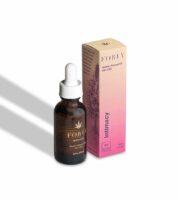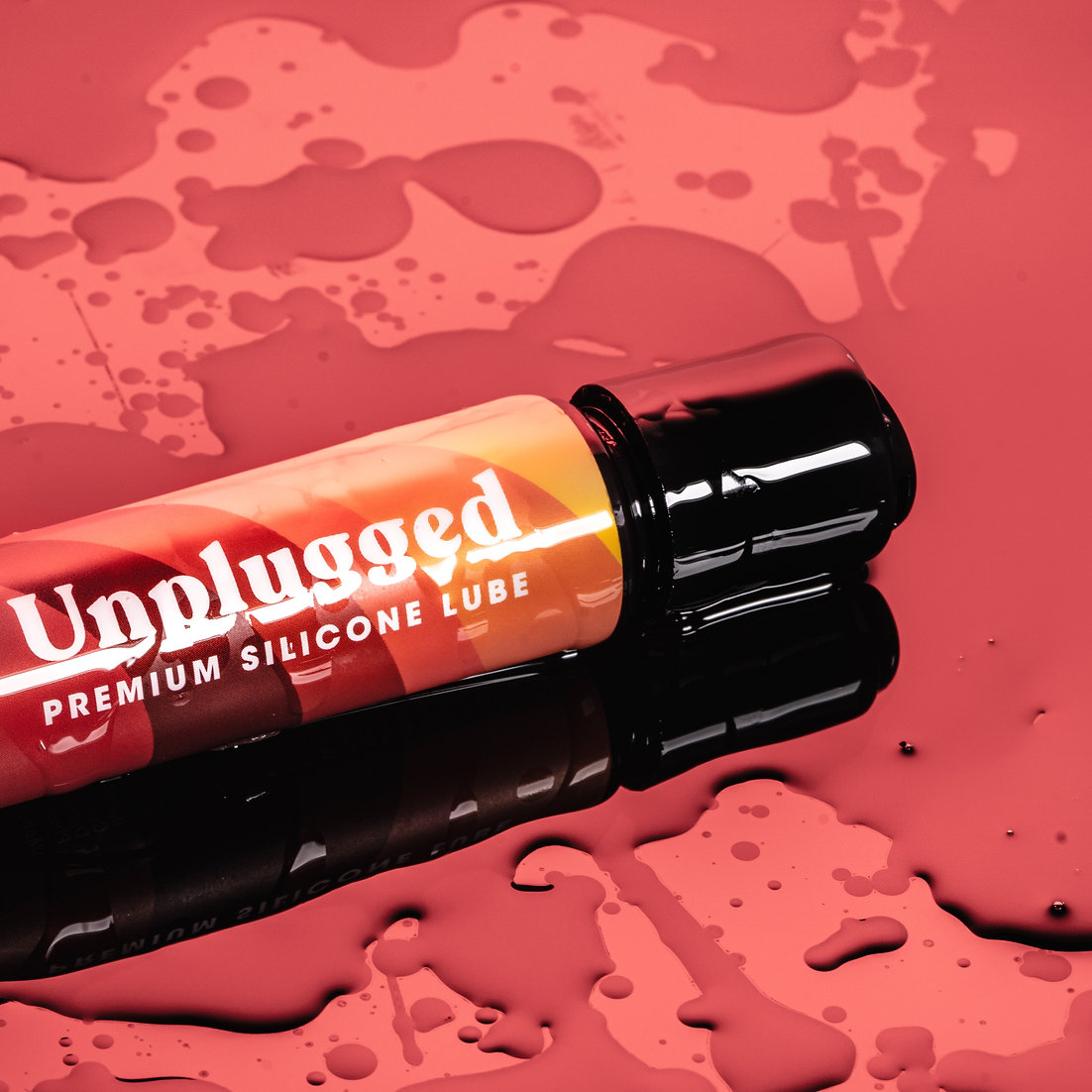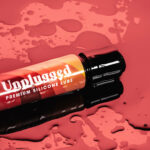Cannabinoid products for intimate care use are now being sold in the unregulated cannabidiol (CBD) marketplace without proper evaluation of their impact on the vaginal microbiota or women’s health. Cannabinoids can exhibit complex and at times contra intuitive actions. The addition of CBD to these products is presumably for its anti-inflammatory pain-relieving qualities even though little is understood with regards to dosing and formulating. Moreover, in states where cannabis is legal, tetrahydrocannabinol (THC) along with other minor cannabinoids are also being added to intimate care products without purview of any federal agency. In general, the impact of vaginal products on vaginal microbiota is poorly understood. Ten years ago, Jespers et al. (2012) proposed to monitor lactobacilli indicator species of the vaginal microbiota in safety trials of intimate care products. Yet today, human safety data are not required prior to commercialization of intimate care products which are currently regulated like cosmetics except for lubricants which do require a 510K filing with the FDA.
The vaginal microbiota (VMB) of healthy women is dominated by Lactobacillus species, which exert important health-promoting effects to their host through the production of antimicrobial compounds, including hydrogen peroxide and lactic acid, to prevent invasive microbes from establishing in the vaginal epithelial mucosa (Pino et al. 2019). It was established almost 40 years ago by Speigel et al. (1983), that changes to the dominant Lactobacillus species, a process called dysbiosis, and overgrowth by diverse anaerobes can result in symptomatic conditions including bacterial vaginosis (BV), vaginal candidiasis, pelvic inflammation, and endometriosis (Taylor et al. 2013). The conditions resulting from dysbiosis are also linked to fertility problems, poor pregnancy outcomes, spontaneous miscarriages and preterm birth (Laniewski et al 2020).

Complications from dysbiosis of the reproductive tract can be serious in women wanting to become pregnant and in already pregnant women, including preterm premature rupture of membranes, spontaneous preterm labor and preterm birth (Ventolini et al. 2022). Reproductive tract microbiomes from idiopathic infertile women differ from fertile women’s VMB (Tomaiulol et al. 2020; Wee et al. 2018). Numerous studies have documented the vaginal community type microbiota associated with occurrence of BV around the world showing that HIV load is inversely proportional to lactobacilli species but positively correlated with BV (Sha et al 2005) as well as endometrial and ovarian cancer development (Walther- Antonio et al. 2016; Zhou et al. 2019).
Sexual lubricants often contain antimicrobial preservatives that have been shown to directly impact lactobacilli species in the cervicovaginal microbiome. The deterioration or absence of the lactobacilli-dominated vaginal mucosal biome through exposure to over-the-counter lubricants has been linked to increased incidence of BV (Brotman et al. 2010) and release of IL-8, a proinflammatory innate immunity mediator, produced by human epithelial cells to recruit leukocytes in response to infection, initiating an inflammatory response (Fashemietal.2013). The addition of under-researched cannabinoids to these products introduces the potential for further biological activity. Cannabinoids are widely reported to exhibit anti-microbial activity in vitro. The mechanism of CBD’s anti-microbial activity is thought to be due to its ability to intercalate into cytoplasmic membranes (Guard et al. 2022) and thereby modulate membrane vesicle (MV) release from bacterial cells which is associated with cell-to-cell communications (Kosgodage et al. 2019). Treatment of the gram-negative bacteria, E. coli, with CBD inhibited MV release and resulted in higher susceptibility to antibiotics but had minimal impact on gram- positive bacterial MV release. And CBD has recently been documented to inhibit the common human fungal pathogen, Candida albicans, from forming biofilms due to increased membrane permeability, reduced ATP levels, and modified cell walls (Feldman et al 2021).
In other reporting, the in vitro antimicrobial properties of CBD were demonstrated to have selective activity across a wide range of gram-positive bacteria, including several antibiotic resistant and anaerobic strains, with minimum inhibitory concentrations (MIC) in the low ppm range (Blaskovich et al. 2021). The conditions of a study impacted the observation of inhibition; for example, if human sera were present in the assay media, the antibacterial activity was drastically reduced. This has been attributed to CBD’s propensity to bind to non-specifically to proteins and thereby become unavailable (Tayo et al. 2018). Surprisingly, CBD does not exhibit broad antibacterial activity against Gram-negative species except against the human pathogens: Neisseria gonorrhoeae, N. meningitides, Moraxella catarrhalis, and Legionella pneumophila (Blaskovich et al. 2021). Bacteria do not develop resistance to CBD, but CBD is also non-systemic because of its high serum binding activity (Tayo et al. 2018).
The active ingredients in intimate care products can impact beneficial microorganisms but also deleterious ones. CBD has become a widespread, understudied active ingredient for women’s health. Today the molecular screening tools exist to conduct large scale epidemiological studies to further understanding of the consequences of dysbiosis and document the adverse effects on women’s reproductive health outcomes. Preventative treatments to reestablish dominant lactobacilli, in particular L. crispatus could have big impacts on not only women’s health but public health (Borgdorff et al. 2014).
As Ley R (2022) recently opined on the human microbiome, “there is much left to do.” Microbiomes are essential to the proper functioning of our bodies affecting social engagement, mental health, obesity, and disease states, and little is known about differences in microbiota across different groups of humans. More research is needed on the biological activity of cannabinoids as well as regulatory oversight to protect the health and safety of consumers.
References
- Blaskovich MAT, Kavanagh AM, Elliott AG, Zhang B, Ramu S, Amado M, Lowe GJ, Hinton AO, Thu Pham DM, Zuegg J, Beare N, Quach D, Sharp MD, Pogliano J, Rogers AP, Lyras D, Tan L, West NP, Crawford DW, Peterson ML, Callahan M, Thurn M (2021) The antimicrobial potential of cannabidiol. Commun Biol 4:7
- Borgdorff J, Tsivtsivadze E, Verhelst R, Marzorati M, Jurrrians S, Ndayisaba GF, Schuren FH, van de Wijgert J HHM (2014) Lactobacillus-dominateed cervicovaginal microbiota associated with reduced HIV/STI prevalence and genital HIV viral load in African women. The ISME J 8:1781-1793.
- Brotman RM, Ravel J, Cone RA, Zenilman JM. (2010) Rapid fluctuation of the vaginal microbiota measured by Gram stain analysis. Sex Transm Infect 86(4):297-302.
- Fashemi B, Delaney MA, Onderdonk AB, Fichorova RN (2013) Effects of feminine hygiene products on the vaginal mucosal biome. Microbial Eco in Health & Disease 24:19703-08.
- Feldman M, Sionov RV, Mechoulam R, Steinberg D (2021) Anti-biofilm activity of cannabidiol against Candida albicans. Microorganisms 9:441-457.
- Ilha EC, Scariot MC, Treml D, Pereira TP, Sant’Anna ES, Prudencio ES, Arisi ACM (2015) Comparison of real-time PCR assay and plate count for Lactobacillus paracasei enumeration in yoghurt. Ann Microbiol 66:597-606.
- Jespers V, Menten J, Smet H, Poradosu S, Abdellati S, Verhelst R, Hardy L, Buve A, Crucitti T (2012) Quantification of bacterial species of the vaginal microbiome in different groups of women, using nucleic acid amplification tests. BMC Microbiol 12:83.
- Kosgodage U et al. (2019) Cannabidiol is a novel modulato of bacterial membrane vesicles. http://doi.org/10.3389/fcimb.2019.00324.
- Laniewski P, Ilhan ZE, Herbst-Kralovetz MM (2020) The microbiome and gynaecological cancer development, prevention, and therapy. Nat Rev Urol 17(4):232-250.
- Laniewski P, Owen KA, Khnanisho M, Brotman RM, Herbst-Kralovetz MM (2021) Clinical and personal lubricants impact growth of vaginal Lactobacillus species and colonization of vaginal epithelial cells: an in vitro study. Sex Transm Dis 48(1):63-70.
- Ley R (2022) The human microbiome: there is much left to do. Nature p. 435
Pino A, Bartolo E, Caggia C, Cianci A, Randazzo CL (2019) Detection of vaginal lactobacilli as probiotic - candidates. Sci Rep 9:3355
- Sha BE, Zariffard MR, Wang QJ, Chen HY, Bremer J, Cohen MH, Spear GT (2005) Female genital-tract HIV load correlates inversely with Lactobacillus species but positively with bacterial vaginosis and Mycoplasma hominis. J Infect Dis 191:25-32.
- Spiegel CA, Davick P, Totten PA, Chen KC, Eschenbach DA, Amsel R, Holmes KK (1983) Gardnerella vaginalis and anaerobic bacteria in the etioloty of bacterial (nonspeecific) vaginosis. Scand J Infect Dis Suppl 40:41- 46.
- Taylor BDP, Darville T, Haggerty CL (2013) Does bacterial vaginosis cause pelvic inflammatory disease? Sex Transm Dis 40:117-122.
- Tayo B. (2018) Exploration of the potential for plasma protein binding displacement and drug-drug interactions of valproate in combination with cannabidiol [abstract] Amer Epilepsy Soc Ann Mtg. New Orleans LA.
- Ventolini G, Vieira-Baptista P, DeSeta F, Verstraelen H, Lonneee-Hoffmann R, Leeev-Sagie A (2022) The vaginal microbiome: IV. The role of vaginal microbiome in reproduction and in gynecologic cancers. J Lower Genital Tract Dis 26(1):93-98.
- Walther-Antonio MRS, Chen J, Multinu F et al. (2016) Potential contribution of the uterine microbiome in the development of endometrial cancer. Genome Med 8:1-15.
- Zhou B, Sun C, Huang J et al. (2019) The biodiversity composition of microbiome in ovarian carcinoma patients. Sci Rep 9:1691.








